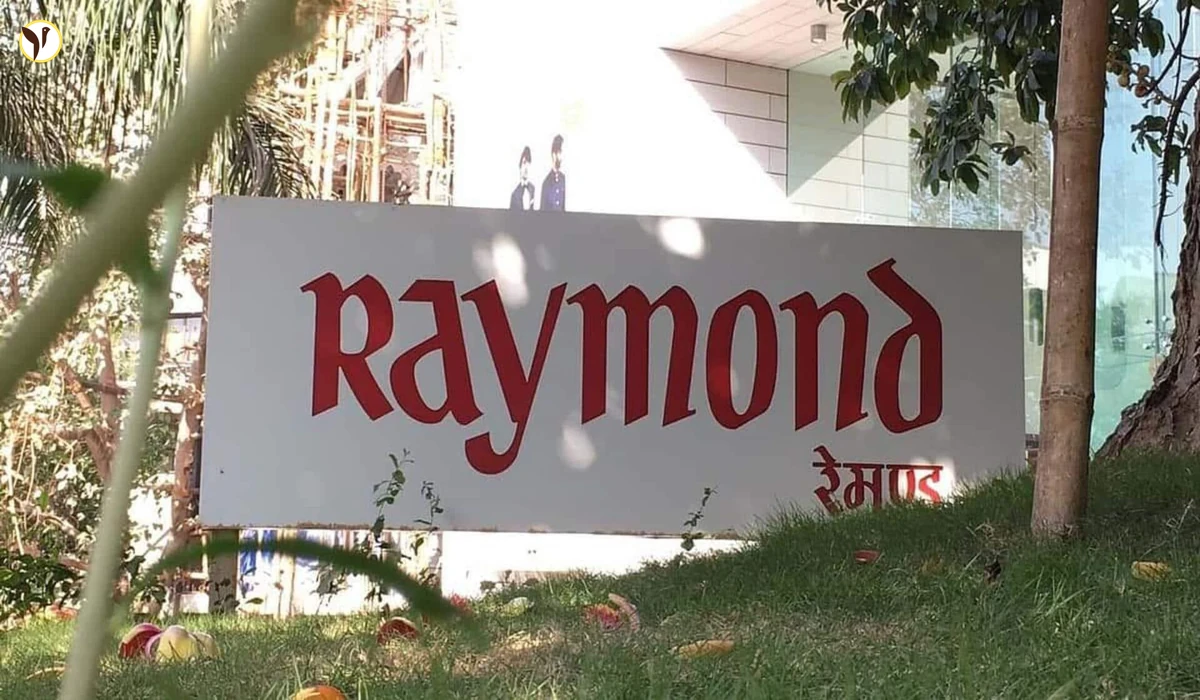Raymond's Stock Plunges 64%: Market Panic or Just Corporate Surgery?
If you checked Raymond's stock today, you might've had a mini heart attack. The iconic Indian textile giant saw its shares nosedive by over 64% in a single trading session! But before you rush to hit that panic button or call your financial advisor in a cold sweat, take a deep breath. This dramatic plunge isn't what it seems at first glance.
What we're witnessing isn't a company in free fall—it's actually a carefully planned corporate restructuring. The steep drop is directly tied to Raymond spinning off its real estate arm, Raymond Realty, into a separate entity. Think of it as the corporate equivalent of cell division rather than a stock market disaster.
When One Share Becomes Two
Wednesday, May 14th marked the record date for this demerger—essentially the day when this corporate split became official. Before today, when you owned a share of Raymond, you were actually holding a piece of both the textile business and the real estate assets bundled together. Now, those businesses are going their separate ways.
The numbers look shocking at first:
- Before the split: Raymond shares were trading at a hefty ₹1,564.30 on the NSE
- After the split: The price plummeted to ₹523.10—a jaw-dropping 66.56% decrease
But here's the crucial bit that those alarming headlines won't tell you: shareholders aren't losing a rupee here. For every Raymond share you held, you're getting one share of the newly independent Raymond Realty. Your investment value hasn't vanished—it's just been redistributed across two companies instead of one.
It's a bit like having a ₹100 note and exchanging it for two ₹50 notes. The value remains identical; it's just in a different form now.
Raymond Realty: The New Kid on the Block
So what about this Raymond Realty that's now standing on its own two feet? It won't be listed on the stock exchanges immediately—we'll need to wait until the second quarter of FY 2025-26 before it makes its debut on the NSE and BSE. That might seem like a long wait, but there are already signs that this could be worth watching.
Just last month, Raymond Realty inked a joint development agreement for a substantial residential project in Mumbai. This isn't some small-time venture either—we're talking about an estimated revenue potential of ₹5,000 crore. Not too shabby for a company that's technically still getting started!
This demerger doesn't exist in isolation. It's part of a bigger chess game that Raymond Group has been playing. Remember when they separated and listed their lifestyle business last September? Same strategy, different business unit. They're methodically breaking down their conglomerate into focused, specialized entities.
Playing the Long Game
I've seen many investors react with alarm to dramatic price movements without understanding the context. Yes, seeing a 64% drop in your portfolio is enough to make anyone's stomach churn. But context is everything in the market.
What Raymond is attempting here isn't new or particularly revolutionary. Many conglomerates have gone this route before, often with positive results. The logic is compelling: focused businesses can often operate more efficiently and respond to market conditions more nimbly than diversified giants.
Think about it—a textile expert might not be the best person to make real estate decisions, and vice versa. By separating these businesses, Raymond is allowing each to develop its own expertise, strategy, and market approach.
The Bottom Line: Don't Judge a Stock by Its Price Movement Alone
We've all seen those clickbait headlines: "Stock Crashes 64% in Single Day!" They're designed to trigger our fear response and drive clicks, not deliver nuanced financial analysis.
If there's one lesson to take from Raymond's situation, it's that context matters enormously when interpreting stock movements. What looks catastrophic at first glance might actually be strategic and well-considered upon closer inspection.
For Raymond shareholders, this isn't the end of anything—it's potentially the beginning of two separate growth stories. Will both the textile business and the real estate venture thrive independently? Only time will tell. But one thing's for sure: that dramatic 64% price drop isn't the disaster it might initially appear to be.
So the next time you see a stock price movement that seems shocking, take a moment to dig deeper. The real story—and the real investment opportunity—might be hiding beneath those alarming percentage points.









